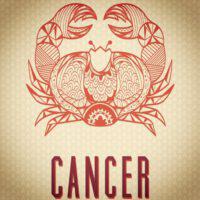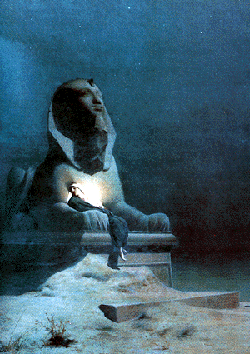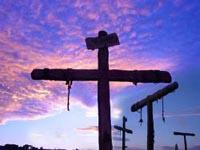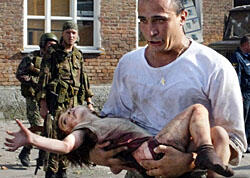The Call
 Damn!, I hate these calls…
Lying on my desk, clipped to a yellow manila binder, is a single sheet of paper. Its pleasant color format and sampled photomicrograph belie the gravity of its content:
Damn!, I hate these calls…
Lying on my desk, clipped to a yellow manila binder, is a single sheet of paper. Its pleasant color format and sampled photomicrograph belie the gravity of its content:
Adenocarcinoma, Gleason grade 9, involving 60% of the specimen.
How do you deliver a death sentence?
Your first impression of Charlie is his sheer mass: 50 years young, healthy as a horse, built like a tank, a former football player turned popular coach at a local high school. He arrived at my office after seeing his family physician for an acute illness, with fever, chills, and problems urinating. His doctor had diagnosed a urinary tract infection, placed him on an antibiotic, and drew a PSA–a screening test for prostate cancer. It was markedly elevated: over 100, with normal being less than 4. I grumbled to myself as I reviewed his chart: Those damned primary care docs shouldn’t draw PSAs when patients have prostate infections–it just muddies the waters.
PSA (prostate specific antigen) is a test which measures a protein in the blood stream released by prostate tissue. It has greatly improved early detection of prostate cancer in the 20 years it has been in widespread use–but it is not, strictly speaking, a cancer test. It is noisy–often abnormal in other conditions, including benign prostate enlargement (BPH), inflammation, and prostate infection. It is virtually always elevated in the presence of an acute prostate infection–often markedly so–and can take months to return to normal. The high PSA alarms the patient, however, who is told he may have cancer. But most do not–and Charlie looked like a classic case of infection.
His history was typical, and his response to antibiotics appropriate, so this seemed at first glance like so many other similar cases I had seen. His prostate exam was alarming, however: rock-hard and irregular, unlike the typical soft, boggy texture of an infected gland. Experience and training kicked in, and I knew exactly what we were dealing with: a relatively uncommon form of prostate infection called granulomatous prostatitis. I had seen dozens of cases–always alarming on first exam, with very high PSA values–and always responding to long-term antibiotics. Charlie was started on a one-month course of high-powered, high-priced bug exterminator, and came back for follow-up after its completion.
He was feeling better, and his PSA had dropped markedly, to 45. His prostate exam also seemed improved, but still quite abnormal. I remained quite confident in my diagnosis–after all, cancer doesn’t get better on antibiotics–but was unwilling to wait much longer to know for sure. I scheduled a prostate biopsy, reassuring him after its completion of my optimisim that the results would show only infection.
The report was a blow to the gut. I sat silently, staring at it, in stunned disbelief.
In the age of PSA screening, most prostate cancers are detected at an early, curable stage–although their slow-growing nature makes treatment less important in very elderly patients. The chances for cure at diagnosis are determined by an estimate of the size and aggressiveness of the tumor. Size is determined by exam, ultrasound findings, and total PSA values; aggressiveness by the Gleason score–a value indicator (between 2 and 10) of the aggressive appearance of the cancer cells under the microscope. Higher is not better: Gleason scores of 9 and 10 indicate rapidly growing cancers which tend to spread early and are difficult–if not impossible–to cure. Charlie had drawn a pair of deuces in a high-stakes poker game: large volume, high-Gleason score cancer. The statistics were dismal: he would likely be dead of cancer in 5 years, regardless of treatment. And as cancer deaths go, this one’s not pretty: pain is a huge management problem in many, as the cancer infests and erodes the spine and long bones, breaking even the strongest of men. One learns to hate this disease before very many such cases have been seen.
And now I had to call him with his biopsy results.
The actual call will be brief: I will inform him that, unfortunately, the biopsy has shown cancer, that additional tests will be needed to determine its extent and the best way to manage it, and arrange for a follow-up visit in the office. The real bad news will be transmitted then, face-to-face, with more than enough information for its gravity to sink in. To do this–without robbing hope–will require more inner strength than is readily at hand.
But for now, I simply need to tell him he has cancer.
The word cancer encapsulates the deepest fears and anxieties of man, embodying in one small word pain, suffering, loss of control, hopelessness, dependency, death, the fragility of our dreams and hopes, and our uncertainty about the hereafter. To inform a patient that he has cancer is to shatter the illusion, the daily denial that death may yet be outmaneuvered, forestalled, kept on hold for some future date of our own determining. It is an illusion which dies hard–surprisingly so, as we alone among all creation are cognizant of its inevitability and certainty.
Perhaps the cruelest wish a man might be granted–were there some bottled genie passing out such favors–is knowledge of his own future. Yet, in some small measure, that power has been granted to me, and others of my profession. Not in any specific manner, of course–not of days or years, details or circumstances–but in knowledge deep enough to see the broad strokes: shadowy figures through rippled glass, of pain, and loss, and shattered dreams, of desperate grasping at the frail straws of fading hope, as the drumbeat of mortality pounds ever louder toward its dark crescendo.
Patients receive the call in different ways. Most accept it with seeming stoicism, and little expressed emotion–yet it is not hard to imagine–and sometimes to sense–the tight grasp of fear that grabs the throat and grips the heart. When wives are listening, the fear is more immediate, more palpable, as voices tremble with panic despite every effort to control it. A million questions will arise–but almost never on the initial call. On rare occasion, there is a casual indifference to the news–prompting reflection on what strength of spirit–or dense denial –such men possess.
I often wonder how I would receive the call. As a Christian, I am confident of a life hereafter, eternal, spent in the presence of Him who loves me. Some call that arrogance, or self-righteous; it is not. God alone knows better than I the darkness of my heart, the depravity that makes me uniquely unsuited to be in the presence of the Holy One but for one moment, much less eternity. But I have been adopted–an unwanted child by an unspeakably loving and merciful Father, who only asks submission to His tender guidance and direction, and transforms a lost fool into something useful, something cherished, someone with purposes aligned–though poorly so–with His own.
But the call of death–so confidently faced from the comfortable vantage of good health and cheap grace–will strike fear into my heart when it arrives, for far smaller challenges have brought dread in larger measure. There will be the fear of the ordeal, the journey of suffering, the loss of things now treasured but instantly made worthless. There will be the pain of watching the loss of those close to me, struggling to make sense of a relationship, undervalued while unthreatened, yet now more precious while counting down inexorably to its end. I know–by the tutor of past and bitter experience–that faith will sustain me and mine through it all. But one cannot know what that day will be like–nor should we wish to ever know.
But for Charlie, the battle will now be enjoined–the weapons and werewithall of modern medicine in all-out war against its implacable foe. Perhaps by some miracle or unexpected grace he will be given a reprieve, a window to revalue and reassess life’s course, its priorities, its purpose. For even when we are cured, we are healed to face death again: Lazarus, once risen, will revisit the stony crypt. Yet the Voice which called him forth calls us also, beckoning toward a painful light from the cold terrors of death.
How difficult to be the herald of another’s mortality–it is a burden no man should have to bear. Some will deliver it through the steely detachment hammered hard by years of training; some avoid it altogether where possible, through choice of profession or abdication of responsibility. But for those who must speak this hard truth, may there be grace and wisdom, empathy and compassion. May it be also for me.
 Recently, an e-mail exchange with a friend brought up the issue of prayer, and how it was a difficult learning experience for him. Like so much in the world of the web, a seed gets planted which starts you thinking. It has taken some time to sprout, but here it is…
Recently, an e-mail exchange with a friend brought up the issue of prayer, and how it was a difficult learning experience for him. Like so much in the world of the web, a seed gets planted which starts you thinking. It has taken some time to sprout, but here it is…

 They say that hell is hot. Sometimes, though, it is very, very cold.
They say that hell is hot. Sometimes, though, it is very, very cold.
 In one of my early posts, I wrote an essay called
In one of my early posts, I wrote an essay called  Three men on a Friday, condemned to die. Ensnared by Roman justice, convicted, and sentenced to a lingering death of profound cruelty and excruciating agony.
Three men on a Friday, condemned to die. Ensnared by Roman justice, convicted, and sentenced to a lingering death of profound cruelty and excruciating agony.
 Ron Suskind, in an article in the NY Times Magazine during the Bush vs. Gore election, Without a Doubt, addressed the issue of the faith of George W. Bush, and began as follows:
Ron Suskind, in an article in the NY Times Magazine during the Bush vs. Gore election, Without a Doubt, addressed the issue of the faith of George W. Bush, and began as follows: David Brooks, in a NY Times Op-Ed piece after the
David Brooks, in a NY Times Op-Ed piece after the